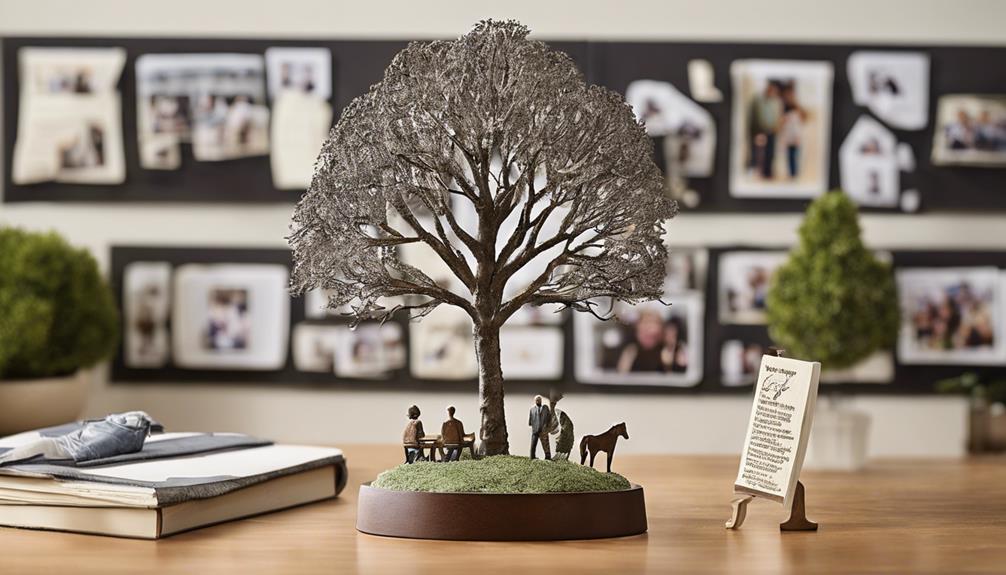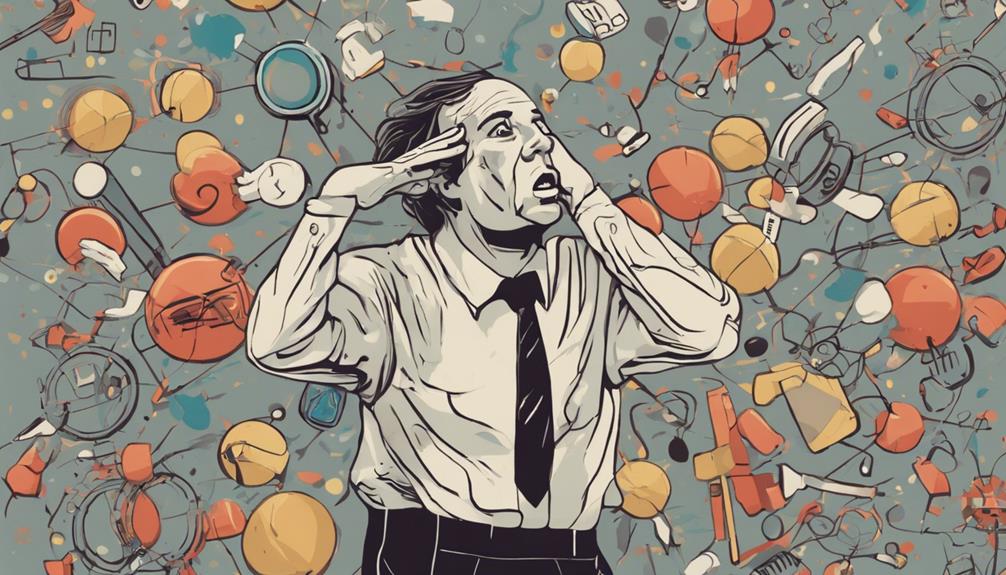To mourn the passing of your father, it is important to acknowledge his departure, embrace your emotions, seek support from family, take care of yourself, preserve memories, honor his legacy, and allow time for healing. Recognize the reality of the loss and the emotions that accompany it. Be open about your feelings and seek comfort from loved ones. Practice self-care through journaling and mindfulness. Keep memories alive by creating keepsakes or traditions. Pay tribute to his legacy by sharing stories and considering charitable actions. Remember, healing is a process that requires time and self-compassion. Learn more about how to navigate this journey. Lean on compassionate communication for hospice support if you feel the need for additional guidance or understanding during this difficult time. Connecting with professionals or support groups can provide comfort and valuable resources to help you navigate your grief. Remember, it’s okay to seek help and lean on others as you process and honor your father’s life.
Key Takeaways
- Seek support from family and friends for comfort and guidance.
- Express emotions openly and engage in self-care practices.
- Preserve memories by creating a memory box or scrapbook.
- Consider creating a lasting tribute in his honor.
- Allow yourself time to heal and embrace a range of emotions.
Acknowledge the Loss
We must confront the reality of our father's passing in order to begin the process of grieving. The loss of a father is a significant experience that can evoke a range of emotions, including grief, sadness, and even anger. It's essential to acknowledge and accept these feelings as a natural response to the loss.
Each individual's experience of grief is personal and unique, influenced by their relationship with their father and their own coping mechanisms. Seeking support from loved ones, friends, or professionals can provide a valuable source of comfort and guidance during this challenging time.
Acceptance of the loss is an important step in the grieving process, allowing us to gradually come to terms with the reality of our father's absence. By recognizing our emotions and reaching out for support, we can navigate through the grieving process with greater resilience and understanding.
Express Your Emotions

Frequently expressing our emotions openly and honestly can aid in the processing of grief following the loss of a father. It is essential to find healthy ways to work through feelings and honor your father's memory. Here are some therapeutic ways to express your emotions after losing a parent:
| Therapeutic Ways | Description |
|---|---|
| Sharing Memories | Reflect on and share fond memories, stories, and feelings about your father with others. |
| Journaling | Write in a journal to express your emotions, thoughts, and memories privately. |
| Art Therapy | Use art as a creative outlet to process your grief and honor your father through creativity. |
| Grief Support Group | Join a support group to connect with others who understand your experience and provide a safe space to share your feelings. |
Engaging in these activities can offer emotional relief and contribute to a healthy grieving process. Remember that it's okay to express yourself in various ways, whether through tears, laughter, screams, or moments of silence.
Seek Support From Loved Ones
Reaching out to family and friends for emotional support can be an important step in maneuvering the grieving process after the loss of your father. Sharing your feelings with loved ones can provide comfort during this difficult time. By opening up about your emotions, you allow others to offer their support, creating a space where you can process grief together.
Talking about memories and stories of your father with family members can help keep his memory alive and strengthen the emotional connection between all of you. In times of loss, seeking support from family members who are also grieving can foster a sense of unity and understanding. Engaging in activities or rituals with your family to honor your father's memory can create a supportive environment for processing grief collectively.
Accepting help and comfort from your loved ones can alleviate feelings of isolation and loneliness. Remember, you aren't alone in this journey, and leaning on your family members for support can make the grieving process more bearable.
Engage in Self-Care Practices

To prioritize our mental health and well-being during the grieving process, it's crucial to engage in self-care practices that promote daily mindfulness. This can include activities like meditation, deep breathing exercises, or simply taking a moment to appreciate the present.
Prioritize Mental Health
Engage in self-care practices such as meditation, exercise, and journaling to prioritize your mental health while grieving the loss of your father. To support your mental well-being during this challenging time, consider the following:
- Seek professional therapy: Talk to a counselor or therapist to address your emotions and receive tailored support.
- Practice mindfulness: Use techniques like deep breathing or meditation to reduce stress and anxiety.
- Join support groups: Connect with others who understand your experience and can offer valuable insights.
- Prioritize sleep and nutrition: Make sure you're getting adequate rest and nourishing your body properly.
- Engage in regular physical activity: Exercise can help boost your mood and overall well-being.
Practice Daily Mindfulness
To further enhance our well-being while mourning the loss of our father, incorporating daily mindfulness practices can be grounding and beneficial. Engaging in self-care activities like meditation, deep breathing, or yoga can help manage grief and reduce stress levels.
It's essential to create a routine that includes self-care rituals such as skincare routines, reading a book, or taking walks in nature to provide comfort and stability during this challenging time. Exploring therapeutic outlets like painting, cooking, or gardening can serve as a means for processing grief and finding moments of joy and relaxation.
Connecting with a support system or therapist to incorporate self-care into our grieving process can greatly enhance emotional well-being and resilience. Let's prioritize our mental health by embracing daily mindfulness practices and self-care activities.
Preserve Cherished Memories

To preserve cherished memories of your father, consider creating a memory box filled with his belongings, photos, and letters.
You can also compile a scrapbook or photo album capturing special moments and experiences you shared with him.
Another idea is to record his voice or create a video montage to revisit his words of wisdom and love.
Memory Collage Creation
Creating a memory collage with photos and mementos is a meaningful way to preserve cherished memories of your father. This therapeutic activity not only helps you process emotions but also serves as a beautiful remembrance of your loved one.
Here are some tips for creating a memory collage:
- Include special items like his favorite belongings or handwritten notes in the memory collage.
- Display the memory collage in a prominent place at home to honor and remember your father.
- Add significant dates, quotes, or symbols that represent your father to add personal meaning.
- Engage in creating the memory collage as a therapeutic activity to process the emotions of grief and remembrance.
Memory Box Compilation
Preserving cherished memories of your father can be achieved through the creation of a memory box, compiling items that hold significant meaning and remind you of him. Include photographs, letters, trinkets, and other memorabilia in the memory box to preserve special memories. Label each item with a short description or its significance in relation to your father. Keep the memory box in a safe and accessible place for easy revisiting, fostering a sense of connection with your father. This tangible reminder of his presence can provide comfort during the grieving process. Below is a table to guide you in selecting items for your memory box:
| Item | Description | Significance |
|---|---|---|
| Photographs | Capturing special moments | Cherished memories |
| Letters | Words of love and wisdom | Emotional connection |
| Trinkets | Small tokens of significance | Reminders of his presence |
| Memorabilia | Items from shared experiences | Nostalgic comfort |
Memory Video Montage
Compiling a memory video montage is a heartfelt way to preserve and honor cherished memories of your father. Include photos, videos, and meaningful moments in the montage to compile a touching tribute. Utilize editing software or online tools to customize the video with music and captions, adding a personal touch.
Share the memory video with family and friends to celebrate your father's life together, fostering a sense of unity and remembrance. Watching the memory video can evoke positive emotions and provide comfort during the grieving process, offering a source of solace and connection.
Create a lasting tribute that not only honors your father's memory but also serves as a reminder of the love and joy he brought into your life.
Honor Your Fathers Legacy

To honor your father's legacy, consider creating a memory book or journal filled with stories, quotes, and memories that reflect his impact on your life. This tangible collection can serve as a cherished keepsake, allowing you to revisit special moments and remember the lessons he imparted.
In addition, compiling a playlist of songs that remind you of your father can evoke emotions and provide comfort during challenging times. Starting a tradition in his honor, like engaging in his favorite pastime or visiting a place he treasured, can be a meaningful way to pay tribute to his memory.
Sharing stories about your father with loved ones helps keep his spirit alive and allows others to celebrate his life alongside you. Moreover, considering the creation of a charitable foundation, scholarship, or donation in his name can perpetuate his legacy of giving back to the community.
These actions not only honor your father's memory but also contribute to a positive impact on others, ensuring that his influence continues to be felt for years to come.
Allow Yourself Time to Heal

Reflecting on our grief journey after the loss of a father, it's important to allow ourselves the necessary time to heal and process our emotions. Healing from this profound loss is part of the grieving process, and it's vital not to rush this emotional journey. To navigate this challenging time with mastery, consider the following:
- Give yourself permission to feel a range of emotions as you mourn the loss.
- Understand that healing is a gradual journey, and it's okay to seek support along the way.
- Allow yourself space to reflect on memories and emotions associated with your father.
- Embrace self-compassion and patience as you navigate the healing process.
- Remember to grant yourself the permission to feel and the space to mourn.
Frequently Asked Questions
How Do I Overcome the Death of My Dad?
When facing the death of a father, we can overcome by acknowledging our emotions, seeking support from loved ones or professionals, and honoring his memory through activities and rituals.
Expressing our feelings through writing, art, or communication can be beneficial. Reflecting on positive memories with our dad can aid in moving forward.
It's important to allow ourselves to grieve in our unique ways and remember that healing takes time.
What Are the 3 C's of Grief?
The 3 C's of grief, which stand for 'can't control it, can't cure it, can't change it,' highlight the importance of acceptance and focusing on manageable aspects. Embracing these principles empowers individuals to navigate the grieving process effectively.
How Can I Be Happy After My Dad Dies?
We can find happiness after losing a father by cherishing joyful memories, engaging in comforting activities, seeking support, allowing ourselves to feel various emotions, and prioritizing self-care. These steps help navigate the grieving process and foster moments of joy amid sorrow.
Embracing a range of feelings and building a strong support system contribute to healing and finding happiness during this difficult time. Remember, it's okay to seek help and prioritize your well-being.
Why Does Losing Your Dad Hurt so Much?
Losing your dad hurts deeply due to the profound emotional bond and unique connection shared. Fathers often provide support, guidance, and love, making their absence keenly felt. The role of protector and provider they hold intensifies the impact of their loss.
Feelings of abandonment, loneliness, and missing a foundational figure arise. Memories of experiences and laughter together amplify the emotional void left.
Conclusion
To sum up, grieving the loss of a father can be a challenging journey. Remember to acknowledge the loss, express your emotions, seek support, practice self-care, preserve memories, honor his legacy, and allow yourself time to heal.
These steps may not erase the pain, but they can help you navigate through the grieving process with grace and resilience. Stay strong, seek help when needed, and remember that healing takes time.









